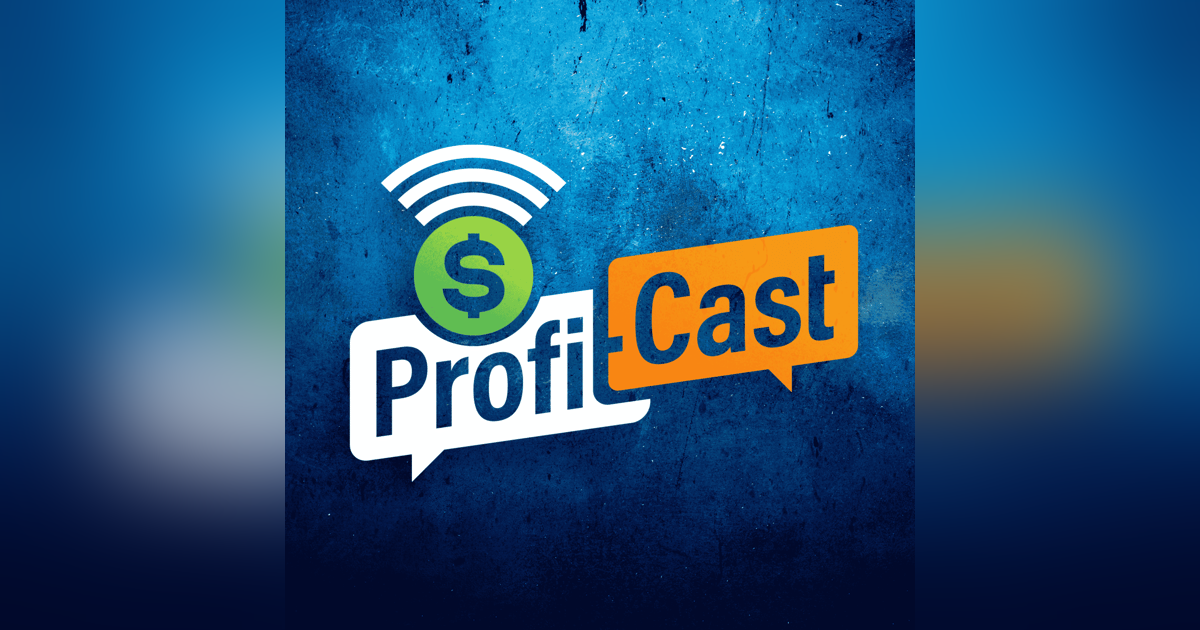80: 3 CRITICAL things to MASTER | Dave Jackson of School of Podcasting


Mastering a craft is a lifelong journey, a journey we welcome here at Profitcast with open arms! While most professions and career paths have varying degrees of mastery, entrepreneurs and creative types often have a more difficult time qualifying...
Mastering a craft is a lifelong journey, a journey we welcome here at Profitcast with open arms! While most professions and career paths have varying degrees of mastery, entrepreneurs and creative types often have a more difficult time qualifying mastery due to the often subjective nature of our skills and the impact society has on the value of those skills.
Trades like operating a switchboard or doing data entry or door-to-door sales are outdated, but the core concepts of those trades are not. Skills like thinking on your feet, attention to detail, and interpersonal communication are prevalent in these outdated jobs that can be honed and applied elsewhere once a trade becomes irrelevant. But when we’ve managed to convince ourselves that the trade we once thrived in, and is now deprecated, was our only means of maintaining a livelihood, we’ve fallen into a poverty mindset.
In this week’s episode of Profitcast, The Real Brian and Dave Jackson have an important discussion about some potentially uncomfortable, but entirely necessary, critical things to master. I am of the belief that our culture, abundant in its Puritanical roots, has made it unnecessarily difficult to talk about subjects like worth and value, particularly when trying to be objective about ourselves, because of a historical emphasis on praising humility and shunning pride. While it is certainly admirable to be humble, and less admirable to be prideful, the behaviors resulting from striving for being more of one and less of the other has created an incredibly large rift between objectivity and honesty. We think we are being honest with ourselves when we are more critical, when in fact our objectivity is skewed by the culture through which we filter our perceptions.
When it comes to our own livelihood, our own passion and our own objectives, it is our prerogative to do an honest skills assessment and self-evaluation, not just through our own lens but also through the lens of trusted colleagues and friends. This means not devaluing our own experience, whether it is through a facade of humility or a misunderstanding of our own skill sets.
The company I worked for prior to the one I am currently working for had a very, very unique hiring process and I think it is worth outlining here briefly because it was the first time I felt I took an honest look at my own abilities and their value.
I performed three tasks for this hiring process:
1) Took a Kolbe Assessment (for a little more info on this, I wrote about it in episode 55).
2) Recorded an audible account of what I believe my top three skills/attributes were.
3) Asked 12 people close to me answer this question: “Please list and describe Emilee’s strengths.” And then discussed and coalesced their results to develop a sort of massive Venn diagram of how other people see me.
Personality assessment, self-evaluation and data-gathering. Individually they say different things; the assessment can explain why I do what I do; the audible self-evaluation forces me to articulate my perception of myself; and the data-gathering from people close to me forces me to see myself through the eyes of the people who should know me best.
I learned so much about myself through this process, but what was so critical to me was the fact that I found the courage and confidence to stop apologizing for being a certain way. What I wrote about in episode 55 was how I learned through my Kolbe assessment that I do not work well with generalities. This is only a weakness if I don’t know how to work within my comfort zone. If I continually pressure myself to strive for results without specifics, I will spend my days frustrated and anxious. But if I recognize that my immediate paradigm has too many generalities and work on breaking them down into specifics, I find that the pressure alleviates and I not only complete my work faster, but better.
If you’ve been sucked into the poverty mindset, or the self-destructive mindset of worthlessness or unrecognized value, I challenge you to find a way out of it. Brian and Dave give some excellent tips to objectively, and realistically, look at your own “avatar” so that you understand your true value. Don’t be afraid to set goals that seem high, as long as you’re willing to do the work necessary to get yourself there.
Brian and David use musical metaphors throughout the podcast, but I’m Minnesotan…and Minnesotans like their rifles and guns, so I’m going to leave you with a shooting metaphor. One of my favorite quotes comes from one of my favorite authors, Henry David Thoreau: “In the long run, men only hit what they aim at. Therefore, they had better aim at something high.” Ironically, Thoreau was a pacifist, but I’m not talking about war or resistance to civil government here. I’m talking about yelling “Pull!”, looking through the scope of a rifle, and following the clay pigeon as it soars into the sky before shattering it a hundred yards in the air with a .22. It is highly satisfying when the combination of instinct, coordination, and subtle understanding of physics and aerodynamics to come together and annihilate a clay pigeon. And that satisfaction can be achieved in all walks of life… but it takes practice, commitment, and a willingness to learn.
Links!























